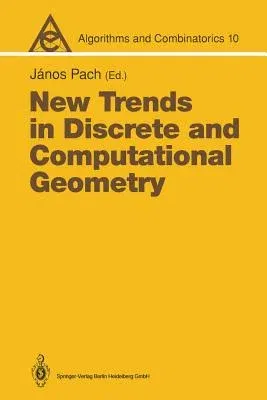New Trends in Discrete and Computational Geometry (Softcover Reprint of the Original 1st 1993)Paperback - Softcover Reprint of the Original 1st 1993, 3 October 2013

Qty
1
Turbo
Ships in 2 - 3 days
In Stock
Free Delivery
Cash on Delivery
15 Days
Free Returns
Secure Checkout
Part of Series
Algorithms and Combinatorics
Print Length
340 pages
Language
English
Publisher
Springer
Date Published
3 Oct 2013
ISBN-10
3642634494
ISBN-13
9783642634499
Description
Product Details
Book Edition:
Softcover Reprint of the Original 1st 1993
Book Format:
Paperback
Country of Origin:
NL
Date Published:
3 October 2013
Dimensions:
23.39 x
15.6 x
1.88 cm
ISBN-10:
3642634494
ISBN-13:
9783642634499
Language:
English
Location:
Berlin, Heidelberg
Pages:
340
Publisher:
Series:
Weight:
498.95 gm

